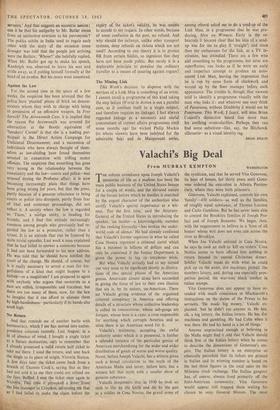Against the Law' For the second time in the space
of a few Weeks, the suspicion has been aroused that the police have 'planted' pieces of brick on demon- strators whom they wish to charge with being in possession of an offensive weapon. In Free Speech? The Arrowsmith Case, it is implied that the reason Pat Arrowsmith was arrested for obstruction at the Bootle equivalent of 'Speakers' Corner' is that she 'is a leading par- ticipant in the Direct Action Campaign for Unilateral Disarmament; and a succession of individuals who have always thought of them- selves as law-abiding have found themselves arrested in connection with trifling motor offences. The suspicion that something has gone very wrong in the relationship, between the community and the law—courts and police—was aroused during the Profumo, affair; it is now becoming increasingly plain that things have been going wrong for years, but that the press, partly because of a genuine reluctance to bring courts or police into disrepute, partly from fear of libel and contempt proceedings, did not reflect it. A society where the law is regarded as 'Them,' a malign entity, is heading for trouble; and I find this attitude increasingly common among people who previously had re- garded the law as a protector, rather than a tyrant. It is an attitude that can be fostered by quite trivial episodes. Last week a man explained that he had failed to answer a summons because it had not been forwarded to his new address. He was told that he should have notified the court of the change. He should, of course; but is it really necessary to arrest a man for for- getfulness of a kind that might happen to a bishop—or a magistrate? I am prepared to agree with anybody who argues that motorists as a race are selfish, irresponsible and truculent, but there are too many of them, now, for the law to imagine that it can afford to alienate them by high-handedness—particularly if its hands also smell high.


































 Previous page
Previous page